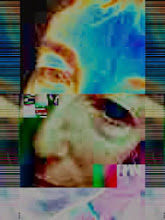
Content analysis, rather obviously, examines the content of something: newspaper article, newspaper as a whole, advertising images, and so forth. Until recently, content analysis involved counting certain aspects that met specific criteria: news stories that referred to Native Americans as Indians.
More recently something called textual or discourse analysis has emerged, the principal adherent and promoter of which is T. A. van Dijk. In numerous articles & books van Dijk has encouraged what he calls discourse analysis as a kind of literary analysis of the words on the page (visuals, etc). As such it enriches traditional content analysis but falls within the same paradigm of knowledge, with all its strengths and shortcomings.
A word[s] about paradigms of knowledge.
American social science traditionally falls into the pluralist society/dominant paradigm. In which, the real world is known and measured through sense perceptions, power is understood as diffused among different groups with competing interests. These perceptions, distorted they may be, ultimately reflect reality. Ideology is understood without its capital letter, as a political spectrum, a series of individual beliefs.
A critical cultural paradigm views ideology as reproductive practices, not only a belief but a tool. Reality cannot be known directly, but rather it is the effects of reality that can be measured. Power is viewed as hegemonic, a powerful few shaping reality. The nature of the social formation is one of monopoly of power the the consent of the many.
Working within a critical cultural paradigm changes the the definition of text and the focus of analysis. A critical textual analysis is not concerned with content per se but with the evidence a text provides of social practices. The text, which is an abstraction, is defined by the researcher, studied less for its social effets and more for "the subjective or cultural forms that it realizes and makes available." [Johnson] The analysis provides documentation not of "underlying" or "latent" meanings, but of regimes of meaning[s] that construct the texts surface. [Rose] Thee regimes privilege certain ways of knowing while they marginalize others.
See these references: Richard Johnson, "What is cultural studies , anyway? Social Text 16:38-80 and Rose, Gillian. Visual methodologies. 2001 New York: Vintage.
For an application of critical textual analysis see my paper:
"Chimera Veil of 'Iranian Woman' and Process of U.S. Textual Commodification: how U.S. print media represent Iran," Journal of Communication Inquiry 28:1, 9-28, 2004.
What is a Text? More to come. Paradigms of knowledge? More to come. Please feel free to offer your opinions to those expressed here. And please do return to my blog.

1 comment:
Dear Elli
I read your usefull and interesting entries and appreciate all of them. In this way, I add the address of your new blog to my links. In addition, please visit my new entry: Social Photography: Shahre Kurd
Post a Comment